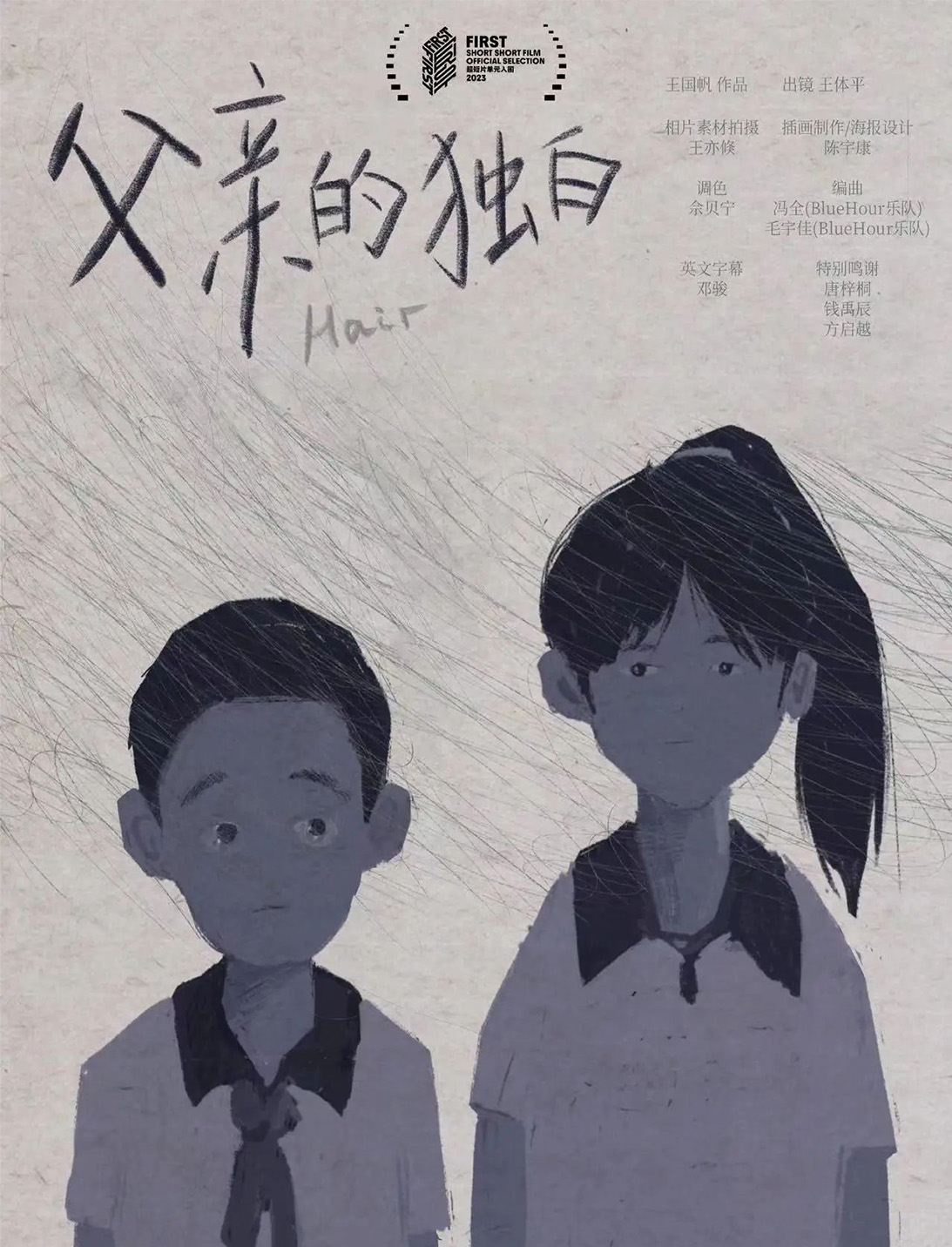ADL Exclusive Interview | FIRST's Annual Ultra Short Film - [Father's Monologue]
Director: Guofan Wang
Interviewer: Mingyang Ma
Mingyang: The film is divided into two parts, "Father's Monologue" and "Hair". Do these two parts have unique roles in expressing the theme?
Guofan: I shot this film last January. It took a year and a half because I needed both a father's and a child's perspective. The "Hair" part includes symbolic elements from my life, like the door at the beginning.
Mingyang: In "Father's Monologue," the father expresses strong emotions. What was his situation and what problems did he face?
Guofan: That day, my mother and I argued at home, and my father joined in. During our quarrel, I filmed him. He said something unexpected, which made me think it could be turned into a film.
Mingyang: The audience’s perception changes between the two parts of the film. Can you explain this emotional shift?
Guofan: At a film meeting, Teacher Liu Qing discussed this. He mentioned "perspectiveism," where the same events look different from different viewpoints. This idea moved me, highlighting the unnecessary harm from one perspective that seems profound from another.
Mingyang: The award speech at FIRST called the film a "dialogue." What about your father’s reaction? Has he seen the film and what does he think?
Guofan: My father has seen it and commented on my video on Bilibili. My sister didn't watch it due to painful memories. Their reactions were as expected; we live in a silent but non-conflictual state, which feels most comfortable.
Mingyang: In the film, the father emphasizes his sacrifices. What do you think of this dedication?
Guofan: Sacrifices often involve self-serving acts that can be hurtful. It's hard to distinguish between genuine love and actions for self-validation. Some of his efforts seemed unnecessary and more about his self-image.
Mingyang: The father questions what parents do wrong, indicating a gap with his children. Is this an issue of unwillingness or inability to communicate?
Guofan: It's an inability to communicate due to the irrational patriarchal system where everyone is a victim. My father, as an accomplice, rationalized his actions. Changing his ingrained beliefs is unrealistic, so I don’t expect him to change, nor will I compromise my values.
Mingyang: You mentioned a balanced but unconventional family relationship. How does this differ from traditional harmony?
Guofan: Traditional harmonious families are unnecessary as a goal. Watching a family drama in 2023 that promoted self-sacrifice for family horrified me. We don't need a perfect, happy ending to feel complete.
Mingyang: How do love and personal desire relate in your parents' "for your own good" actions?
Guofan: It varies by situation and person. You need to objectively discern between genuine care and self-interest.
Mingyang: What has growing up in this family taught you?
Guofan: Despite the broken family relationship, it introduced me to movies, which played a parental role in my life, strengthening me psychologically. However, you shouldn't be grateful for the pain, even if it makes you stronger.
